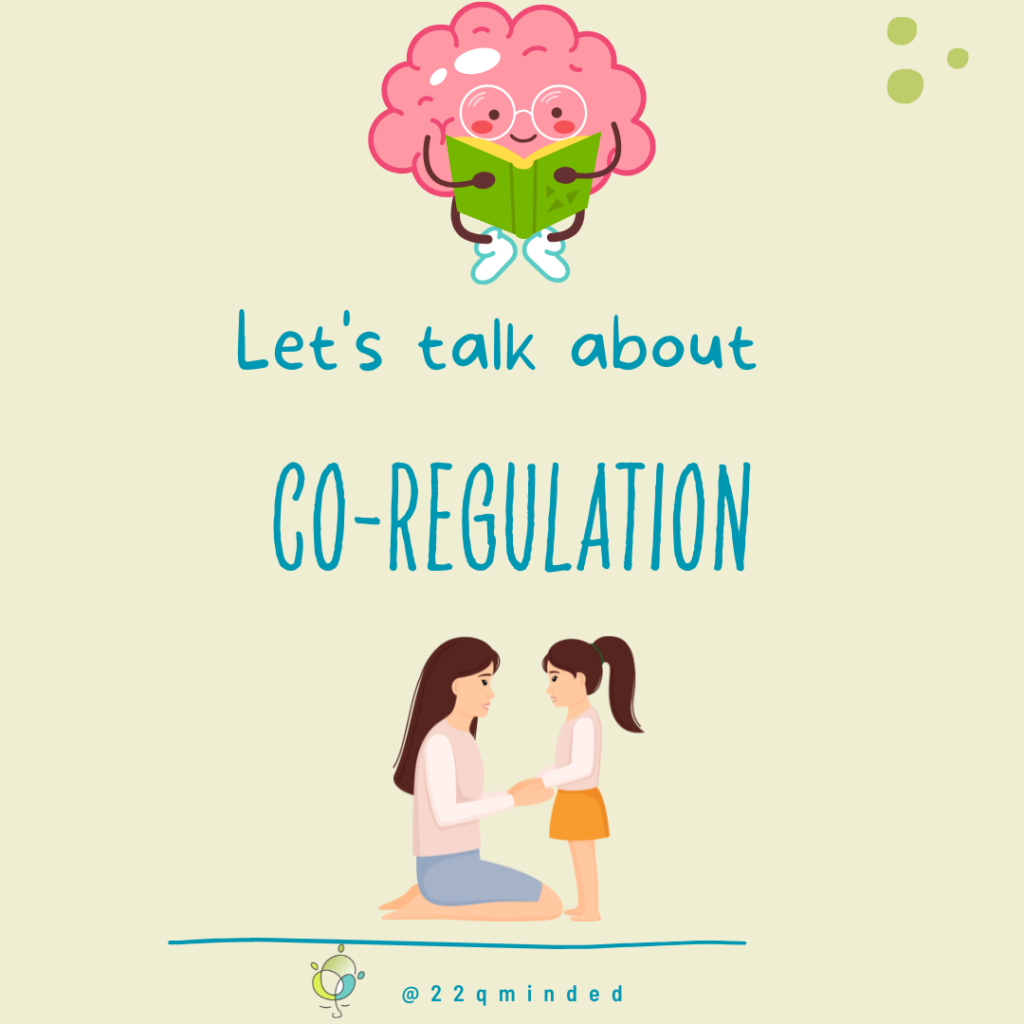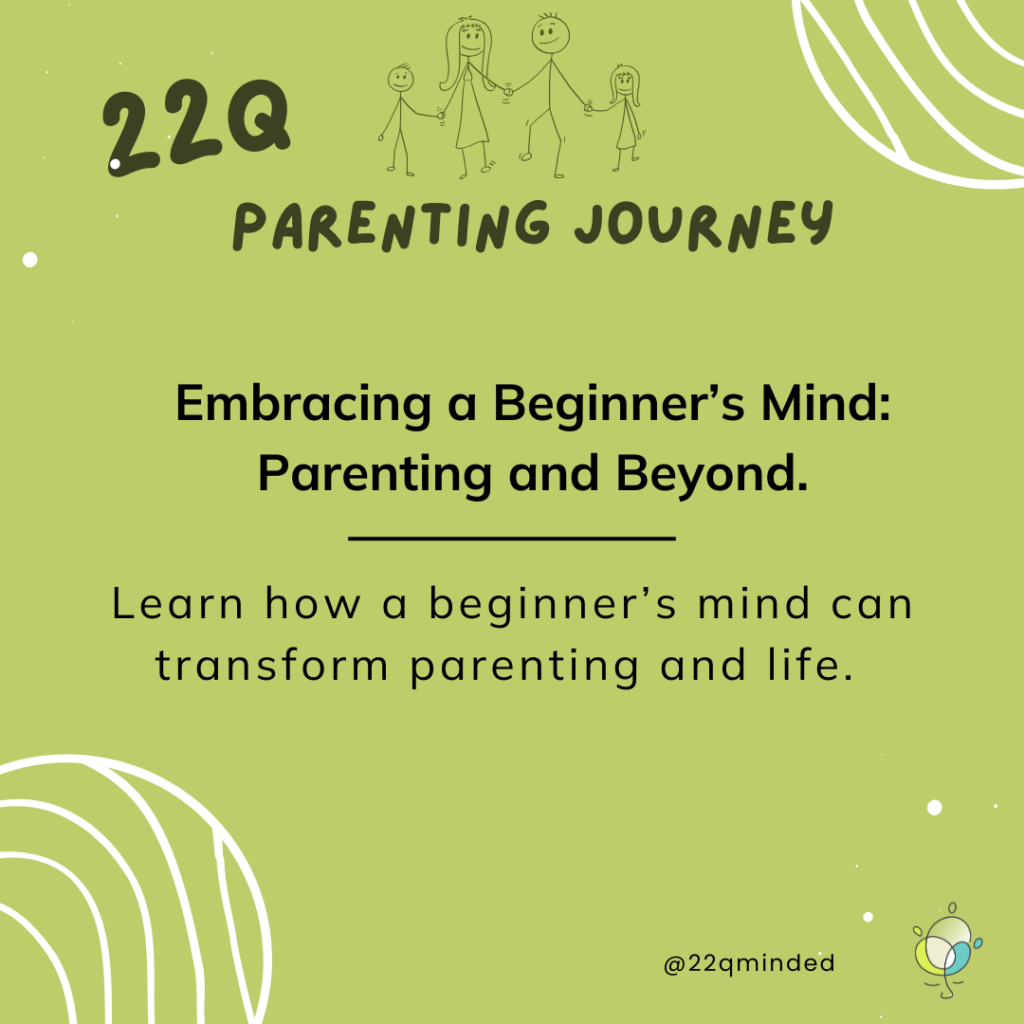Parenting is often described as a delicate dance—a balance of nurturing, guiding, and teaching. One crucial, yet sometimes overlooked, part of this dance is co-regulation. Co-regulation refers to the process by which parents and caregivers help children manage their emotions, behaviours, and physiological states, particularly in moments of stress or dysregulation. It’s not just about calming your child; it’s about fostering a relationship where emotional resilience and self-regulation skills can flourish over time.
What is Co-Regulation?
Co-regulation is the shared process of emotional regulation between a caregiver and a child. It involves being physically and emotionally present, offering guidance and support while helping the child move from a dysregulated state to a calm and regulated one. For young children, whose brains are still developing, this process is essential in building their capacity to self-regulate.
Think of co-regulation as a two-way street: while parents guide and model calming strategies, children learn to internalise these approaches for future use. It’s also about listening, validating their feelings, and modelling emotional awareness so they learn how to handle emotions constructively. Over time, co-regulation lays the groundwork for self-regulation—a skill children carry with them into adulthood.
Why is Co-Regulation Important?
Children with 22q-related conditions often have developmental delays that can also include differences in how they regulate their emotions. In addition, children with del22q11.2 have been described as displaying extremes of behaviour including temper outbursts as well as shyness and withdrawal.
It’s important to recognise that different children develop at different rates, and each child’s journey towards emotional regulation is unique. Young children often lack the ability to independently manage big emotions, such as frustration, fear, or sadness. Instead of being able to “self-soothe” in the way adults might expect, they rely on their caregivers to provide stability and reassurance.
When parents respond to their children’s emotional needs with empathy, calmness, and consistency, they teach them vital lessons:
– How to label emotions: Naming feelings like “sad,” “angry,” or “overwhelmed” helps children understand their experiences.
– Healthy coping mechanisms: By modeling strategies like deep breathing or talking through a problem, parents show children constructive ways to manage stress.
– The power of connection: Children learn that they are not alone in their struggles and that relationships can be a source of comfort and safety.
Without effective co-regulation, children may struggle to navigate emotional challenges and build secure attachments, which are foundational for mental health and resilience.
Practical Tips for Co-Regulation
1. Stay Calm Yourself
Children often mirror the emotions of their caregivers. If you’re calm, they’re more likely to follow suit. When your child is in distress, take a moment to breathe deeply, ground yourself, and model the behaviour you’d like them to emulate.
2. Be Physically Present
Sometimes, all a child needs is your presence. A comforting touch, a gentle hug, or sitting beside them can be enough to help them feel safe and start calming down.
3. Validate Their Feelings
Instead of dismissing or minimising their emotions, acknowledge them. Phrases like, “I can see that you’re really upset,” or “It’s okay to feel angry,” let your child know that their emotions are valid and understood.
4. Use Simple Language
Young children benefit from clear, concise communication. Use simple phrases to help them understand what’s happening: “Your body feels wiggly because you’re frustrated. Let’s take some deep breaths together.”
5. Offer Tools for Regulation
Teach age-appropriate strategies for calming down. For example:
– Breathing exercises (e.g., “smell the flower, blow out the candle”)
– Sensory activities like squeezing a stress ball or holding a favourite blanket
– Movement, such as jumping or stretching, to release pent-up energy
6. Repair After the Storm
If emotions run high and things don’t go perfectly, don’t worry—what matters most is what happens afterward. Apologising, reconnecting, and talking through the experience can deepen your bond and reinforce trust.
Challenges and Misconceptions
Co-regulation isn’t always easy. When children are in the midst of a meltdown, it can test the limits of even the most patient parent. Here are some common challenges and how to approach them:
– You’re feeling dysregulated too: Take a moment to step away if needed, ensuring your own emotions are in check before re-engaging with your child.
– You fear ‘spoiling’ your child: Providing comfort and support during distress doesn’t mean you’re being permissive. Co-regulation isn’t about giving in; it’s about teaching and guiding.
– Your child doesn’t respond immediately: Co-regulation is a process, not an instant fix. Stay consistent and patient as your child learns.
Long-Term Benefits of Co-Regulation
When parents consistently practice co-regulation, the benefits extend far beyond childhood. Children who grow up with co-regulation are more likely to:
– Develop emotional intelligence and empathy
– Build secure relationships
– Manage stress and anxiety effectively
– Exhibit better problem-solving and decision-making skills
By investing in co-regulation today, you’re equipping your child with the tools to navigate life’s challenges with confidence and resilience.
Final Thoughts
Parent-child co-regulation is a cornerstone of healthy emotional development. While it requires patience, empathy, and effort, the rewards are immense. By listening, validating feelings, and modeling emotional awareness, you help your child learn to thrive. Remember, co-regulation isn’t about perfection; it’s about connection. In those moments of shared calm, you’re building a bond that lasts a lifetime.
If you are interested in learning more about Co-regulation and other emotion regulation and emotion coaching techniques, check out our Feelings in Focus program in the 22qMinded shop. A program specifically designed for parents raising children with 22q-related conditions.




